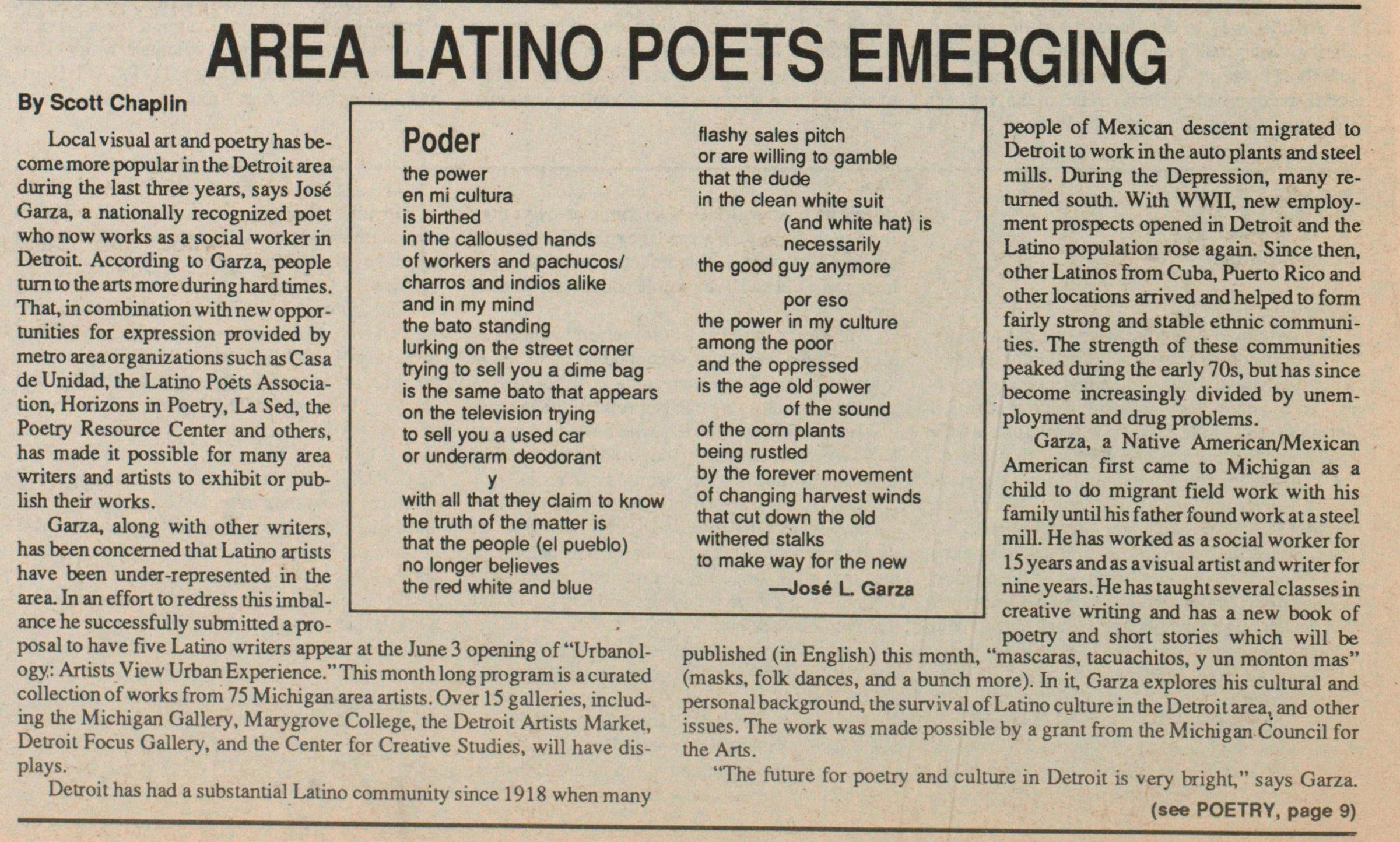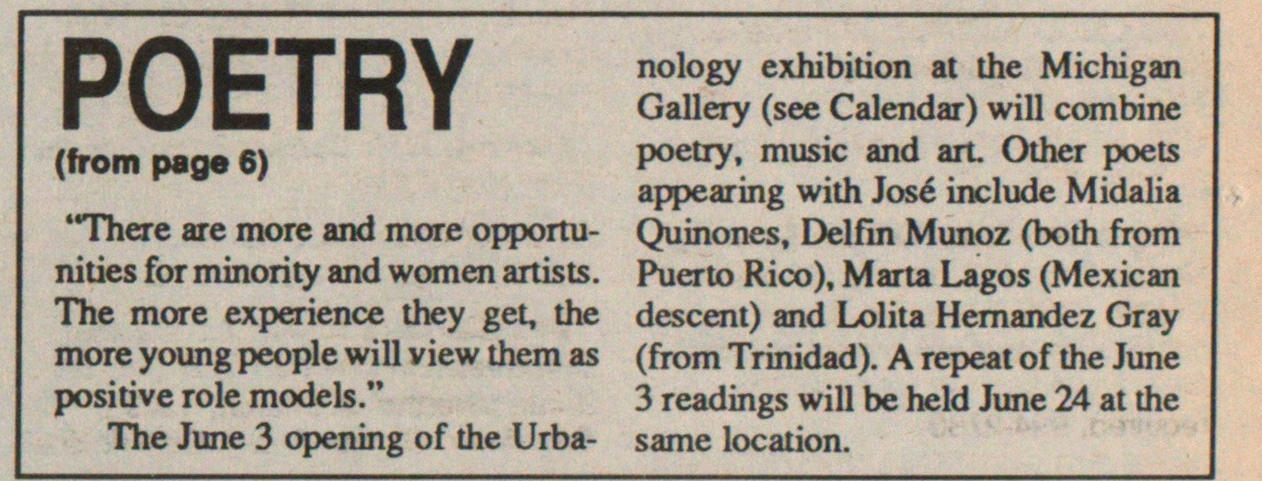Area Latino Poets Emerging


Area Latino Poets Emerging
Local visual art and poetry has become more popular in the Detroit area during the last three years, says José Garza, a nationally recognized poet who now works as a social worker in Detroit. According to Garza, people tum to the arts more during hard times. That, in combination with new opportunities for expression provided by metro area organizations such as Casa de Unidad, the Latino Poets Association, Horizons in Poetry, La Sed, the Poetry Resource Center and others, has made it possible for many area writers and artists to exhibit or publish their works.
Garza, along with other writers, has been concerned that Latino artists have been under-represented in the area. In an effort to redress this imbalance he successfully submitted a proposal to have five Latino writers appear at the June 3 opening of "Urbanology : Artists View Urban Experience." This month long program is a curated collection of works from 75 Michigan area artists. Over 15 galleries, including the Michigan Gallery, Marygrove College, the Detroit Artists Market, Detroit Focus Gallery, and the Center for Creative Studies, will have displays.
Detroit has had a substantial Latino community since 1918 when many people of Mexican descent migrated to Detroit to work in the auto plants and steel mills. During the Depression, many returned south. With WWII, new employment prospects opened in Detroit and the Latino population rose again. Since then, other Latinos from Cuba, Puerto Rico and other locations arrived and helped to form fairly strong and stable ethnic communities. The strength of these communities peaked during the early 70s, but has since become increasingly divided by unemployment and drug problems.
Garza, a Native American/Mexican American first carne to Michigan as a child to do migrant field work with his family until his father found work at a steel mili. He has worked as a social worker for 1 5 years and as a visual artist and writer for nine years. He has taught several classes in creative writing and has a new book of poetry and short stones which will be published (in English) this month, "mascaras, tacuachitos, y un monton mas" (masks, folk dances, and a bunch more). In it, Garza explores his cultural and personal background, the survival of Latino culture in the Detroit area, and other issues. The work was made possible by a grant from the Michigan Council for the Arts.
"The future for poetry and culture in Detroit is very bright," says Garza. (see POETRY, page 9) "There are more and more opportunities for minority and women artists. The more experience they get, the more young people will view them as positive role models." The June 3 opening of the Urbanology exhibition at the Michigan Gallery (see Calendar) will combine poetry, music and art. Other poets appearing with José include Midalia Quinones, Delfin Munoz (both from Puerto Rico), Marta Lagos (Mexican descent) and Lolita Hernandez Gray (from Trinidad). A repeat of the June 3 readings will be held June 24 at the same location.
Poder
the power / en mi culture / is birthed / in the calloused hands / of workers and pachucos / charros and indios alike / and in my mind / the bato standing / lurking on the street corner / is trying to sell you a dime bag / is the same bato that appears / on the television trying / to sell you a used car / or underarm deoderant
y
with all that they claim to know / the truth of the matter is / that the people (el pueblo) / no longer believes / the red white and blue / flashy sales pitch / or are willing to gamble / that the dude / in the clean white suit / (and white hat) is / necessarily / the good guy anymore
por eso / the power in my culture / among the poor / and the oppressed / in the age of old power / of the sound / of the corn plants / being rustled / by the forever movement / of changing harvest winds / that cut down the old / withered stalks / to make way for the new
- Jose L. Garza